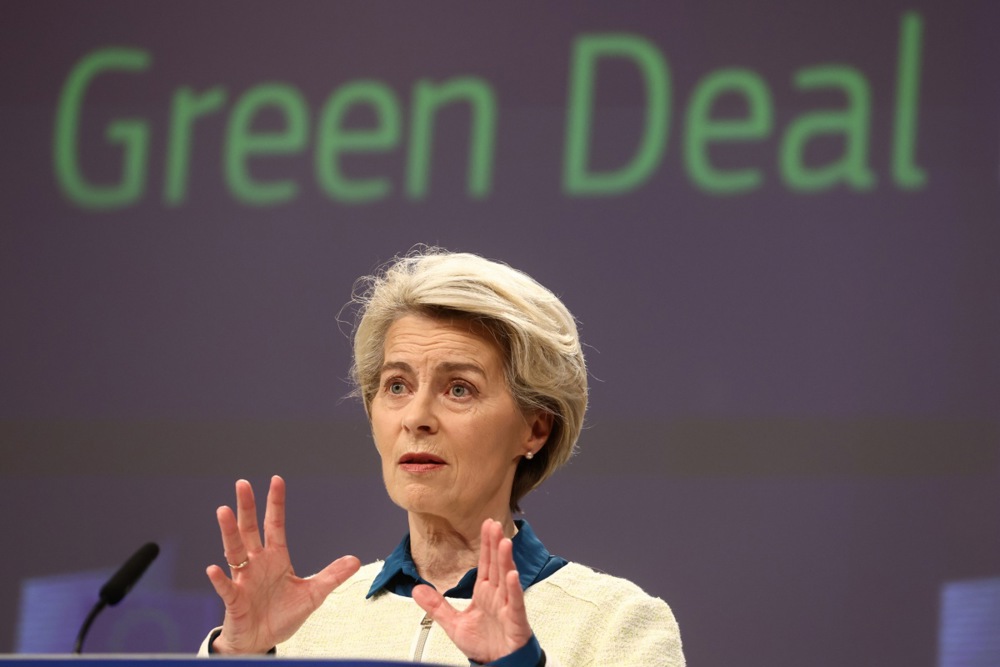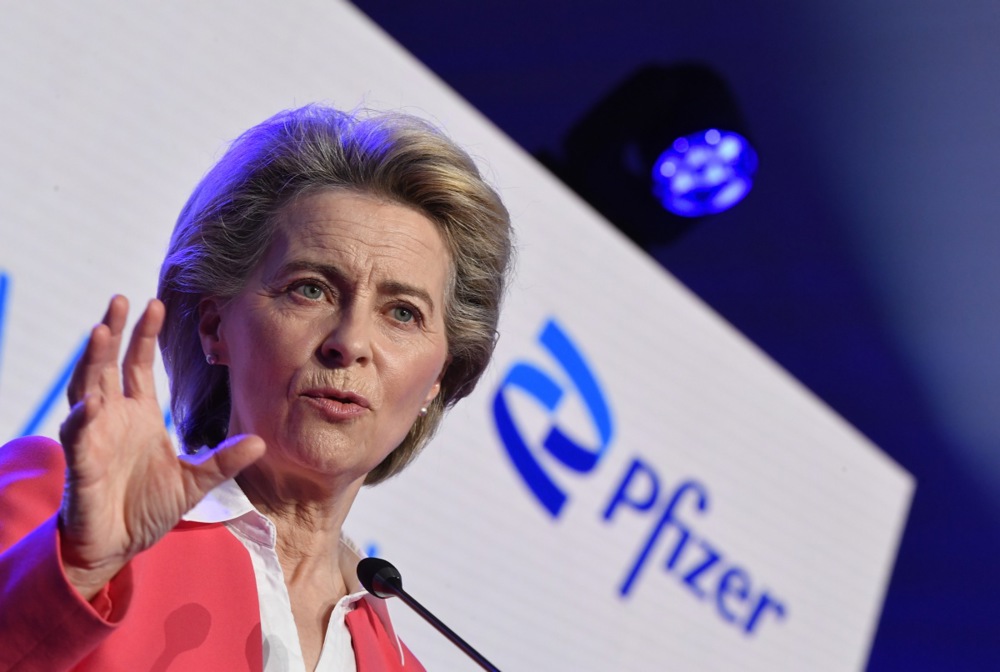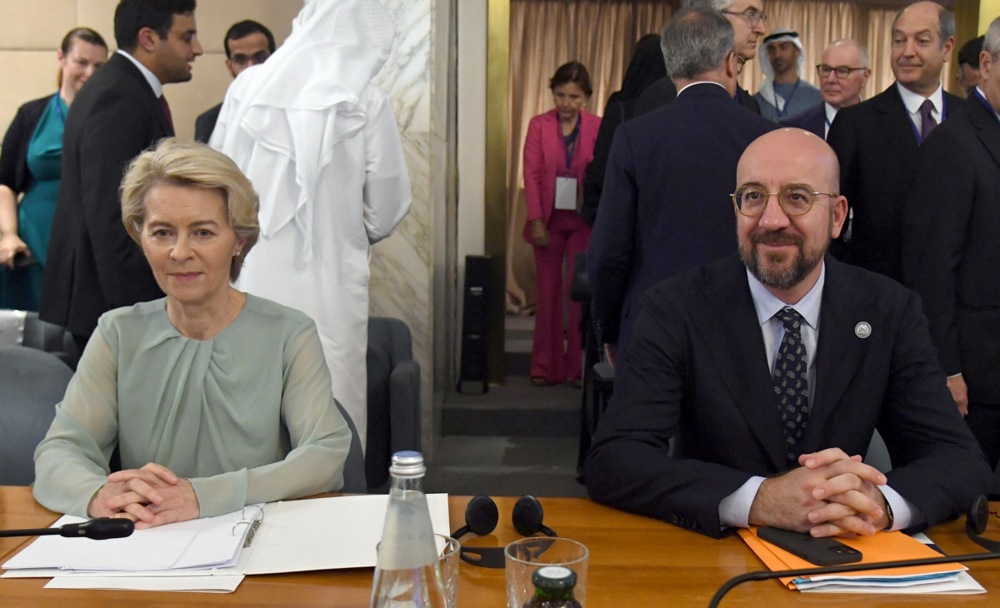German finance minister Christian Lindner blames European Commission President Ursula von der Leyen for Europe’s worsening economic performance.
“It is Ursula von der Leyen’s legacy that we have chosen regulation instead of innovation,” Lindner told German newspaper Handelsblatt on March 6.
“We need a turnaround. Von der Leyen’s policies are jeopardising our competitiveness and economic prosperity.”
Lindner wants more investment in the European economy but he does not want the European Union to dedicate new funds to achieve that.
The German finance minister called for a reduction in bureaucracy and progress on the Capital Markets Union. “We need a single market for financial services.”
He said he felt Member States should continue to lower their budget deficits and indebtedness.
The European Union needs “to become a State” to survive in the modern world, former Italian prime minister and European Central Bank boss Mario Draghi has claimed. https://t.co/ajgzkhouTi
— Brussels Signal (@brusselssignal) December 1, 2023
According to Lindner, the problem in Europe is not a lack of subsidies but a lack of private investment.
He said he doubted the US would be able to maintain its subsidy policy under the Inflation Reduction Act in the coming years.
The Inflation Reduction Act of 2022 was a landmark US federal law designed to reduce inflation by possibly cutting federal government budget deficits while promoting clean energy.
Regarding increased US European Union investment, he said: “That’s not feasible.”
He called instead for a return to the principles of the free internal market. “Von der Leyen and the Commission are concentrating too much on creating a new bureaucracy.
“In order to maintain the attractiveness of European integration, we must return to its core. And that’s freedom,” he said.
That is effectively the same view as held regarding the recently established defence spending programme in the EU.
“That Europe needs to invest more in defence doesn’t imply that the EU as an institution should be the one doing it,” Lindner said.
“This is a core competence of the Member States, under the umbrella of NATO. I believe the EU should assume a very, very limited role when it comes to direct investments in military equipment.
“What the Union can do more is remove obstacles for defence investments on the internal market and create a level playing field.
“It can also co-ordinate defence procurements and drive innovation. I understand there’s a need for funding for research and innovation,” the German finance minister added.
“I recently spoke with a top executive from a leading American company who said: ‘In the US, we want to develop technology, while the EU aims to regulate it.’
“That’s the legacy of Ursula von der Leyen,” Lindner concluded.
His liberal Free Democratic Party (FDP) is tanking in the polls, apparently punished for its role in the progressive traffic-light Government.
That seems to be leading Lindner, the party leader, to occasionally thwart plans from Berlin when he feels it providential and to seek to “stand out”.
All that comes as the German economy is in crisis. In its most recent report, the Ifo Institute, also known as the Leibniz Institute for Economic Research at the University of Munich, cut its growth forecast for the country further than previously.
#ifoKonjunkturprognose Frühjahr 2024: Wachstumsprognose für das laufende Jahr auf 0,2% gekürzt, von 0,7% noch im Januar und 0,9% im Dezember. Für das kommende Jahr erhöht sich die Schätzung um 0,2% auf 1,5% Wachstum. #ifoPrognosen? https://t.co/Pl4n2oqNy9 pic.twitter.com/BNe4Vn9lb3
— ifo Institut (@ifo_Institut) March 6, 2024
Germany’s gross domestic product growth, according to the Ifo in its latest report on March 6, is now expected to be 0.2 per cent – rather than the 0.7 per cent as it had before.
“The German economy is paralysed,” the Ifo Institute said. “Sentiment among companies and households is bad and uncertainty is high.”
It further warned: “The current economic and financial policy poses a further significant risk,” and said it was expecting difficult negotiations on the budget situation and slow policy changes.
“The expected recovery is likely to recede further into the future.”
Timo Wollmershäuser, Ifo’s head of economic forecasting, said: “Consumer restraint, high interest rates and price increases, the Government’s austerity measures and the weak global economy, are currently dampening the economy in Germany and leading to another winter recession.”
Building permits for apartments in Germany fell 27 per cent in 2023, the statistics office said, underscoring a downturn in demand in the construction and real estate industry. https://t.co/pkoJBAbfJy
— Brussels Signal (@brusselssignal) February 29, 2024





